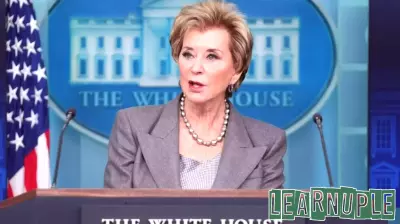Government's Threatening Messages to Educational Institutions Waste Billions
March 2, 2025 - 17:31

Recent revelations have shed light on how the government's communications with school districts and universities have become a coercive tool, pressuring institutions to align with specific ideological standards. These letters, framed as guidance, often serve as a veiled threat: comply with the administration's vision or face potential civil rights investigations that could jeopardize federal funding.
This approach has led to significant financial waste, as educational institutions scramble to implement policies that align with these demands, diverting resources away from essential programs and services. Critics argue that this tactic not only undermines the autonomy of schools but also prioritizes compliance over genuine educational improvement.
As institutions grapple with these pressures, the implications for students and educators are profound. The focus on compliance can stifle innovation and limit the ability of schools to address the unique needs of their communities. The ongoing debate raises critical questions about the role of government in education and the true cost of these coercive measures on the future of learning.
MORE NEWS

February 24, 2026 - 05:20
Education Department to move more programs to other federal agencies amid Trump, McMahon efforts to close itThe U.S. Department of Education has announced plans to relocate two additional programs to other federal agencies. This move is part of a continued effort to streamline operations and reduce the...

February 23, 2026 - 03:07
City public schools to be closed Monday due to snowA significant winter storm forecast to blanket the city has led officials to cancel classes for all public school students this coming Monday. The decision, announced preemptively, aims to ensure...

February 22, 2026 - 03:07
Odyssey ClayWorks brings art, education to Asheville community - Asheville's 828 News NOWA local pottery studio is serving as a vibrant hub for artistic education and community connection, offering a wide array of programs that extend far beyond the wheel. The studio provides...

February 21, 2026 - 13:12
Federal appeals court allows Louisiana’s Ten Commandments law to take effectA federal appeals court has permitted a controversial Louisiana law mandating the display of the Ten Commandments in all public school classrooms to move forward. The ruling, issued on Friday,...